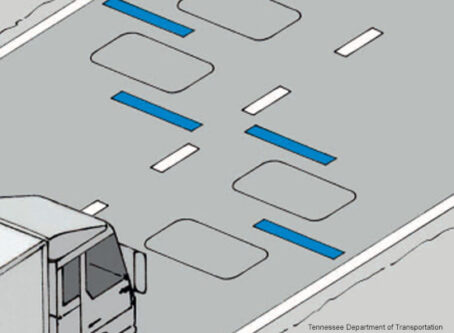British Columbia asks federal government to ‘reduce the gaps’ in current safety certification model
Officials in British Columbia are calling upon the federal government to help close loopholes in the current safety certification model that allow carriers to circumvent provincial enforcement efforts.
In an effort to prevent wrecks, British Columbia’s Ministry of Transportation and Infrastructure in December announced increased fines and penalties for carriers involved in infrastructure crashes.
In addition to incurring fines that are the highest in the country, repeat offenses now also could lead to “suspension and possible cancellation” of a carrier’s safety certificate, “essentially preventing their operation” in British Columbia, the ministry said.
Two weeks later, the province made use of these stricter penalties, suspending the safety certificate of Chohan Freight Forwarders Ltd. following the carrier’s sixth infrastructure crash within the previous two years.
With its fleet of 65 vehicles grounded in British Columbia, the company turned to its Alberta trucks to keep freight moving. Because the firm operates in Alberta as a separate entity, the provincial suspension did not apply to that fleet, allowing Chohan to continue to operate in British Columbia.
On Monday, Jan. 8, British Columbia Minister of Transport and Infrastructure Rob Fleming sent a letter to Federal Minister of Transport Pablo Rodriguez asking the Canadian government to help close this loophole.
Across Canada, safety certification is issued to carriers based on the province in which their vehicles are plated. Because of this, businesses operating in multiple jurisdictions are required to hold certificates issued by the province they operate in.
“This means that there is no one jurisdiction responsible for oversight of the carrier’s entire operations if they have safety certificates in multiple jurisdictions,” Fleming said.
In his letter, Fleming implored Rodriguez to collaborate with the provinces and territories to “improve the current decentralized safety certificate model and take an active role in finding solutions that will reduce the gaps in the current system that currently allow extra-provincial motor carrier undertakings (carriers) to lawfully avoid enforcement consequences when operating commercial vehicles unsafely across Canada.”
Fleming added that he believes this issue “affects all aspects of commercial transportation” and requested the matter be added to the agenda of the next Federal-Provincial-Territorial Ministers of Transportation meeting. The B.C. Ministry of Transportation and Infrastructure told Land Line that meeting will be held on Feb. 23 in Montreal.
“A very small minority of companies are creating huge problems for road safety as well as extensive, costly infrastructure damage,” Fleming said. “Collaboration between all levels of government is necessary to hold these organizations accountable across all Canadian jurisdictions.” LL









